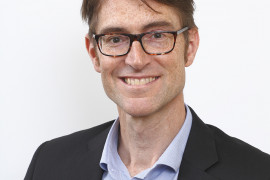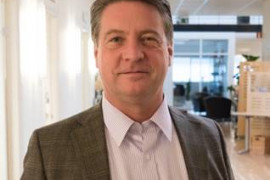Nicolas Garnier is the General Delegate of AMORCE, the national association of communities, associations and companies for waste management, energy and heating networks, which organizes the annual meeting of heating networks. Delivering a very positive assessment of the last edition, which took place in early December, he warns us, however, on some bad signs for the evolution of the French Heating Fund.
What is Amorce?
Amorce was created in 1987, at a time when many waste incineration plants were built in France. Some elected officials then reflected on the possibility of using heat from the incinerators to power the heating networks. About twenty of these officials joined forces to create the Association of Masters of Work in Heat Networks and Environment: Amorce. The association then developed around two issues: waste management methods and heating networks. Today it has 820 members, comprising half of all the cities, departments and regions in France.
How would you asses the meeting which you organised in early December?
The meeting was very positive. We have the strong feeling that heating networks are experiencing a second flush of youth. This can be seen in the number of participants but also with the number of networks being awarded eco-labels. The networks have grown by about 35% over the last five years, with a share of renewable energy that has almost doubled. Everyone remarked upon the feeling of great momentum during the heating network meeting.
That said, we have still some concerns because the statements made at the time of presentation of the energy transition bill are starting to be questioned. The government had promised to increase renewable heat in heating networks by fivefold and to double the Heat Fund by 2017. Now it seems that the ADEME (the body in charge of this fund) isn’t benefiting from any extra resources in 2015 compared to 2014. Other types of mechanisms have been mentioned but remain unclear as yet.
No prospects without the Heat Fund?
It’s a bit dramatic, but yes. On a competitive level, renewable heat is much closer to profitability than other energy sources. There is everything to gain by betting money on a more competitive solution. We are not asking for over-funding but simply enough funding to get projects off the ground. If the Heat Fund remains at the same level of funding as before, there is a real risk that the number of projects will stagnate or decrease, while we still have to create new networks, especially in dense urban neighbourhoods.
Are heating networks a prerequisite for successful energy transition?
Absolutely. The bill on the energy transition targets a decline in consumption and an increase in the share of renewable energy. If one observes the energy consumption profile of France, we see that almost half concerns heating. To reduce this consumption and help improve the environment, we must turn to greener forms of heating. There is also a logical attention to results because the legislation provides for an increase of renewable energy share to 32%. Electricity has a rate of RE of only 15%; for gas this is less than 1%; while heating networks are already 40% renewable. Unfortunately, there are not enough heating networks as they represent between 6 and 7% of the heating market in France. We can see how beneficial it would be to deploy heating networks in a bid to reach the objectives laid out under the energy transition law.
What are the priorities for developing these networks?
I would say they are threefold. First, make them more virtuous by mobilizing poorly exploited fields such as wood, geothermal or waste energy, and in the future solar and biogas energy. Then set up a real coordination of the three networks, namely electricity, gas and heating to ensure a more harmonious development and that they can deliver their full power. This raises the question of strengthening the role of the licensing authority for gas and electricity and the taking over in May of these networks by local authorities. Finally, we must assume that it is an industrial and commercial public service and therefore create a real relationship with consumers and put in place an approach based on competitiveness and service improvements.
What role can energy decentralisation play?
It is clear that the more power we give to local authorities on the matter the more heating networks we can develop. If their share is only 6% today, it’s probably because until now the local authorities did not push their energy policy. We must acknowledge that they have a great social tool that has the ability to provide energy at a reasonable cost. It is also an economic tool as a heating network that works well can also guarantee income to the community.
Do you feel that the local authorities are committed to the issue?
They understand that energy is a major challenge, but in this period of high economic stress, they tend to focus on essential public services in their community. We must continue to try to convince them that energy is not an alternative public service. For this, I would ask them three questions:
– How much does the energy consumption of your municipality cost you?
– How much do you pay out to help underprivileged households meet their energy bills?
– How many energy-related jobs do you have?
If local politicians want to create jobs, if they wish to reduce social inequalities and reduce the operating budget of the municipality, the energy issue is essential. It’s no longer just about ecology, but a social and economic issue.





